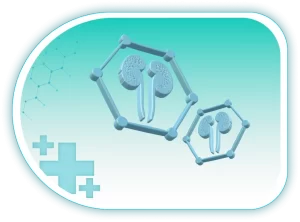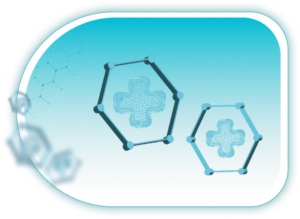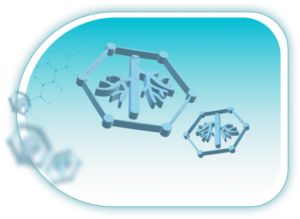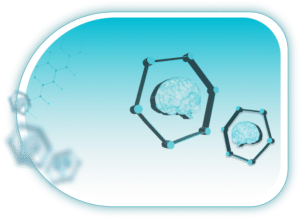In today’s fast-paced and often stressful world, mental health has never been more crucial. While physical health garners considerable attention, we must not underestimate the significance of mental well-being. Mental health disorders affect millions worldwide, and understanding the landscape of common conditions is the first step toward offering support, seeking treatment, and reducing stigma.
Let’s delve into Mental Health 101 and explore some of the most common mental health disorders and conditions. We’ll not only shed light on these conditions but also provide insights into their symptoms, causes, and available treatments.
Depression
Depression is one of the most prevalent mental health disorders globally. It’s characterized by persistent feelings of sadness, hopelessness, and a lack of interest or pleasure in daily activities. Other symptoms can include changes in appetite, sleep disturbances, and a lack of energy.
Causes: Depression is often caused by a combination of genetic, biological, environmental, and psychological factors.
Treatment: Treatment options include therapy (such as cognitive-behavioral therapy or CBT), medication (antidepressants), and lifestyle changes (exercise, stress reduction).
Anxiety Disorders
Anxiety disorders encompass a range of conditions characterized by excessive worry, fear, and uneasiness. Generalized Anxiety Disorder (GAD) involves chronic worrying about various aspects of life, while Panic Disorder leads to sudden and severe panic attacks.
Causes: Anxiety disorders can result from genetics, brain chemistry, personality, or life events.
Treatment: Treatment may involve therapy (CBT, exposure therapy), medications (antidepressants, anti-anxiety drugs), and lifestyle changes (stress management).
Bipolar Disorder
Bipolar Disorder involves extreme mood swings, including manic highs and depressive lows. During manic episodes, individuals may feel excessively energetic, impulsive, and euphoric, while depressive episodes are characterized by sadness and lethargy.
Causes: Genetics and brain structure are significant contributors to Bipolar Disorder.
Treatment: Medications (mood stabilizers, antipsychotics) and therapy (psychoeducation, CBT) help manage symptoms.
Post-Traumatic Stress Disorder (PTSD)
PTSD can develop after exposure to a traumatic event. Symptoms include flashbacks, nightmares, severe anxiety, and emotional detachment. It can affect anyone who has experienced trauma, such as combat veterans, survivors of accidents, or victims of violence.
Causes: Trauma exposure, particularly life-threatening events, can trigger PTSD.
Treatment: Treatment options include therapy (exposure therapy, EMDR), medications (antidepressants), and support groups.
Obsessive-Compulsive Disorder (OCD)
OCD is characterized by intrusive and distressing thoughts (obsessions) and repetitive behaviors or rituals (compulsions) performed to alleviate anxiety. These rituals can consume significant time and interfere with daily life.
Causes: OCD is believed to result from a combination of genetic, neurological, and environmental factors.
Treatment: Therapy (Exposure and Response Prevention, CBT) and medications (selective serotonin reuptake inhibitors or SSRIs) can effectively manage OCD symptoms.
Schizophrenia
Schizophrenia is a severe and chronic mental disorder characterized by distorted thinking, emotions, and perceptions. Symptoms can include hallucinations, delusions, disorganized thinking, and social withdrawal.
Causes: Genetics, brain structure, and environmental factors play roles in the development of schizophrenia.
Treatment: Treatment usually involves antipsychotic medications, psychotherapy, and support services.
Attention-Deficit/Hyperactivity Disorder (ADHD)
ADHD is a neurodevelopmental disorder that affects both children and adults. It’s marked by symptoms such as inattention, hyperactivity, and impulsivity, which can interfere with daily functioning and relationships.
Causes: Genetics, brain structure, and environmental factors contribute to ADHD.
Treatment: Treatment may involve behavioral therapy, medication (stimulants, non-stimulants), and educational support.
Eating Disorders
Eating disorders like anorexia nervosa and bulimia nervosa are characterized by unhealthy eating behaviors and distorted body image. Anorexia involves extreme restriction of food intake, while bulimia includes binge-eating followed by purging behaviors.
Causes: Eating disorders often result from a combination of genetic, psychological, and societal factors.
Treatment: Treatment typically involves therapy (CBT, dialectical-behavior therapy) and medical monitoring for physical health.
Borderline Personality Disorder (BPD)
BPD is characterized by emotional instability, impulsive behaviors, and a fragile self-image. People with BPD often have difficulty regulating their emotions and maintaining stable relationships.
Causes: The exact cause of BPD is unclear but likely involves genetics and environmental factors.
Treatment: Treatment options include therapy (dialectical-behavior therapy, CBT) and medications to address specific symptoms.
Social Anxiety Disorder
Social Anxiety Disorder is marked by an intense fear of social situations, leading to avoidance of social interactions. Individuals with social anxiety may fear judgment or embarrassment.
Causes: Genetics, brain chemistry, and life experiences contribute to social anxiety.
Treatment: Treatment often includes therapy (CBT, exposure therapy) and, in some cases, medication (antidepressants, anti-anxiety drugs).
Mental health conditions affect millions of people, and understanding these disorders is crucial for promoting awareness, reducing stigma, and providing support. If you or someone you know is struggling with a mental health disorder, seeking help from a mental health professional is a critical step toward managing symptoms and improving overall well-being. Remember, mental health is just as important as physical health, and there is hope and help available for those who need it.
Expanding Your Knowledge: Exploring Less Common Mental Health Disorders
While the above discussion covers some of the most common mental health disorders, it’s important to note that many other conditions exist. These less common disorders can also have a significant impact on individuals’ lives and require specialized care and attention. Some of these disorders include:
- Dissociative Disorders: These involve disruptions in consciousness, memory, identity, or perception of the environment, often as a result of trauma.
- Personality Disorders: These are characterized by enduring patterns of behavior, cognition, and inner experience that deviate markedly from expectations.
- Neurodevelopmental Disorders: Conditions like Autism Spectrum Disorder and Intellectual Disabilities impact cognitive, social, and adaptive functioning.
- Somatoform Disorders: These involve physical symptoms that suggest a medical condition but have no underlying medical cause.
- Trauma and Stressor-Related Disorders: Conditions like Acute Stress Disorder and Adjustment Disorders are related to exposure to traumatic or stressful events.
- Substance-Related and Addictive Disorders: These involve the abuse of substances like drugs and alcohol, leading to significant impairment.
Understanding the diversity of mental health disorders is crucial for ensuring comprehensive support and treatment for those in need. Mental health professionals are trained to diagnose and treat various conditions, providing hope and assistance to individuals facing these challenges.
Promoting Mental Health Awareness and Support
Promoting mental health awareness and support is a collective responsibility. Here are some ways we can contribute to a mentally healthier society:
- Education: Educate yourself and others about mental health conditions, reducing stigma through understanding.
- Open Conversations: Encourage open and compassionate conversations about mental health within your family, workplace, and community.
- Seek Help: If you or someone you know is struggling with mental health issues, reach out for professional help. Early intervention is key to effective treatment.
- Support: Offer support to those dealing with mental health challenges, showing empathy and patience.
- Advocacy: Advocate for mental health policies and resources that prioritize access to quality mental healthcare.
- Self-Care: Prioritize your own mental well-being through self-care practices like exercise, mindfulness, and stress management.
Remember, mental health is an essential aspect of our overall well-being. By understanding, supporting, and advocating for mental health, we can create a more compassionate and inclusive society where individuals can thrive and seek the help they need without fear of judgment or discrimination.














